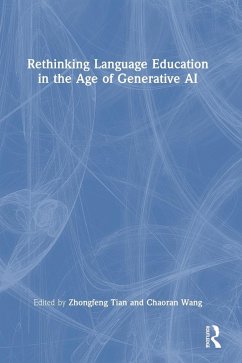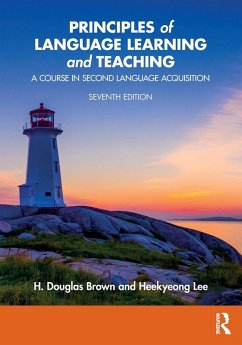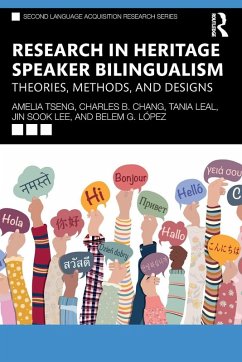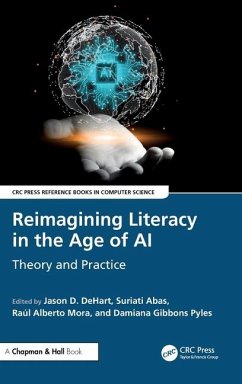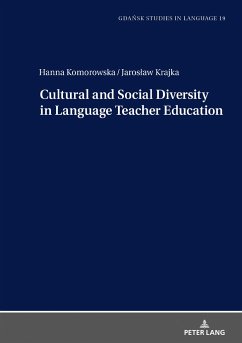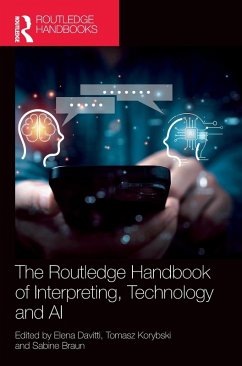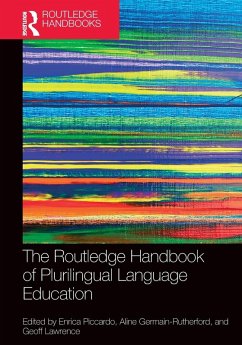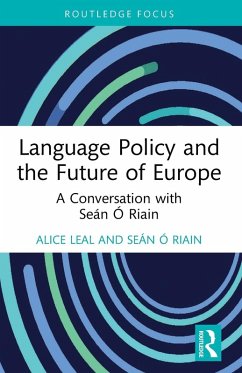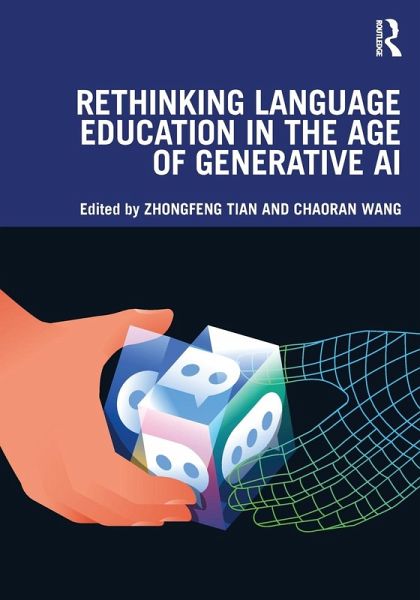
Rethinking Language Education in the Age of Generative AI
Versandkostenfrei!
Versandfertig in 6-10 Tagen
56,99 €
inkl. MwSt.

PAYBACK Punkte
28 °P sammeln!
Rethinking Language Education in the Age of Generative AI bridges the gap between theory, research, and practice in AI and language education. Through conceptual pieces, empirical studies, and practical applications, this book provides critical insights and implications for reimagining language education in the age of generative AI.The contributors explore a wide range of issues, reflections, and innovations in AI and language education across diverse contexts, including English as a Second Language (ESL), English as a Foreign Language (EFL), foreign language learning, postsecondary pathways p...
Rethinking Language Education in the Age of Generative AI bridges the gap between theory, research, and practice in AI and language education. Through conceptual pieces, empirical studies, and practical applications, this book provides critical insights and implications for reimagining language education in the age of generative AI.
The contributors explore a wide range of issues, reflections, and innovations in AI and language education across diverse contexts, including English as a Second Language (ESL), English as a Foreign Language (EFL), foreign language learning, postsecondary pathways programs for international students, and language teacher education programs. Topics examined include critical AI literacy, GenAI-informed second language teaching and assessment, teacher and student perceptions, tool development for language learning, as well as ethical considerations, policies, and guidelines. The book incorporates interdisciplinary perspectives, such as L2/foreign language studies, education, and applied linguistics, as well as global insights from countries like the United States, Canada, South Korea, Thailand, Indonesia, and the Philippines.
This book is essential for students and researchers seeking to leverage AI to enhance language teaching and learning in innovative, critical, ethical, and responsible ways.
The contributors explore a wide range of issues, reflections, and innovations in AI and language education across diverse contexts, including English as a Second Language (ESL), English as a Foreign Language (EFL), foreign language learning, postsecondary pathways programs for international students, and language teacher education programs. Topics examined include critical AI literacy, GenAI-informed second language teaching and assessment, teacher and student perceptions, tool development for language learning, as well as ethical considerations, policies, and guidelines. The book incorporates interdisciplinary perspectives, such as L2/foreign language studies, education, and applied linguistics, as well as global insights from countries like the United States, Canada, South Korea, Thailand, Indonesia, and the Philippines.
This book is essential for students and researchers seeking to leverage AI to enhance language teaching and learning in innovative, critical, ethical, and responsible ways.





